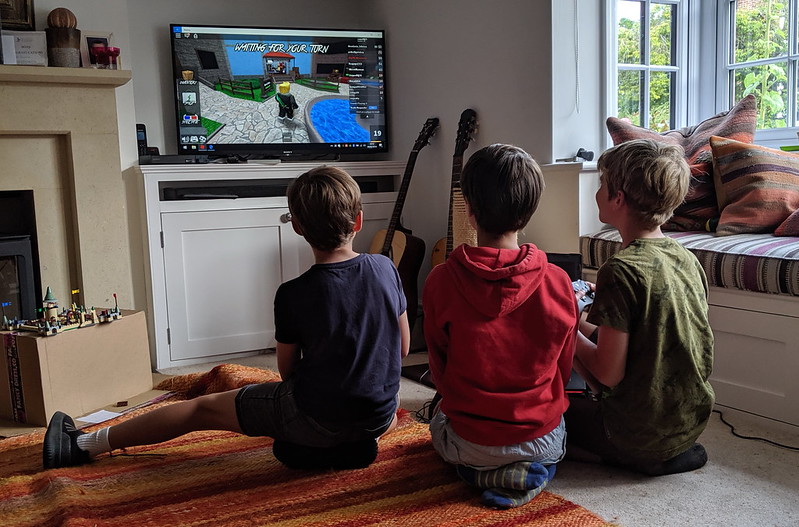
Two mothers have filed a lawsuit against the popular video game platform Roblox, accusing it of facilitating gambling among minors. In the suit, filed in US District Court for the Northern District of California, Rachel Colvin and Danielle Sass said their children gambled away Roblox in-game currency on third-party websites. They claim that Roblox is well aware of these sites and has done nothing to stop them.
The in-game currency, Robux, is worth a bit more than a penny each and can be purchased with real money, as is the case with many video games and their in-game coins. Depending on how closely parents watch their kids, it is not difficult for a child to use a grown-up’s credit card to buy Robux. Many video games allow users to store their payment information to make purchases faster (though my son plays Roblox, I don’t know if that’s the case here, as he has never made an in-game purchase).
The Roblox’s terms say that “experiences that include simulated gambling, including playing with virtual chips, simulated betting, or exchanging real money, Robux, or in-experience items of value” are off-limits, the moms claim that this is not completely true, as there are third-party websites that allow for gambling with Robux.
The company told Bloomberg law that, “These are third-party sites and have no legal affiliation to Roblox whatsoever,” Roblox said in a statement to Bloomberg Law. “Bad actors make illegal use of Roblox’s intellectual property and branding to operate such sites in violation of our standards.”
But while that may technically be true, the complaint explains how easy it is for children to gamble Robux – and, in turn, real money used to by them – on those sites. The sites provide a method for users to link their Roblox accounts in order to be able to transfer Robux in and out. Colvin and Sass say that because the accounts are linked Roblox can easily track transactions.
Not only that, but Roblox could very easily block these types of transactions, say the plaintiffs. They don’t, however, because anything that increases engagement with the Roblox platform is good for the company.
“They allege that Roblox charges a 30% fee on the websites’ conversion of Robux back into dollars, raking in ‘millions in annual cash fees,’” writes Bloomberg Law.
The gambling sites also reward players for promoting them on social media, rewarding people with Robux. According to the complaint, some well-known Roblox influencers and streamers have complained publicly about the Robux gambling sites, so Roblox has certainly been aware of their existence.
Image credit: Henry Burrows via Flickr


















